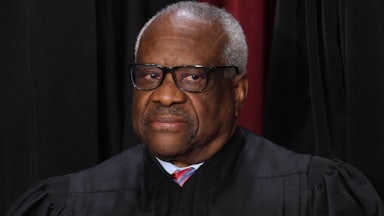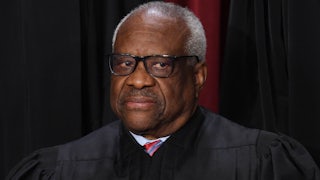You can’t say Andrei Cherny didn’t warn us. Back in 2012, when Kyrsten Sinema was a former Arizona state senator and he ex-chairman of the state party, they squared off in a bitter three-way primary in the state’s then-new 9th congressional district. “What we saw then with her is exactly who she has been in Washington, D.C.,” Cherny said recently. “She was someone who was the Republicans’ favorite Democratic legislator. Somebody who was cozy with the Republican lobbyists. Somebody who was funded massively by private equity.”
Fast forward 11 years, and Sinema, who won that 2012 nomination, is a U.S. senator and registered independent, having quit the Democratic Party in December after years of frustrating colleagues and progressives alike by bucking the left on issues ranging from taxes to the filibuster. She’s dangling the prospect of running for reelection as an independent over both political parties’ heads. As for Cherny, he’s still frustrated that he couldn’t nip her career in the bud. “Our campaign’s failing in 2012 is that we weren’t able to convince enough people of who she was, and too many people thought, ‘As long as a Democrat wins, we’re going to be OK,’” he said. “But the truth is [that] there really is a difference. And that’s the lesson that I’m taking into this campaign.”
“This campaign” is for Arizona’s newly redrawn 1st congressional district, where Cherny is one of five candidates running in the Democratic primary.
He is coy about dinging his current Democratic primary opponents but has no such reticence against his old foe. He’s eager to slam Sinema, and he framed his candidacy as about both beating incumbent Republican David Schweikert and offering Arizonans an option dissimilar to Sinema’s notorious brand of conservative iconoclastic Democratic politics.
“To put it simply, that comes down to no more Schweikert and no more Sinemas,”* Cherny explained to me.
This won’t be Cherny’s first or even second time on a ballot. A Los Angeles native and Harvard graduate with a law degree from Berkeley, his first job out of college landed him in the White House: He wrote a Harvard Crimson column about Bill Clinton’s 1996 reelection campaign that caught the Clinton White House staffers’ notice, eventually snagging him a speechwriting gig almost immediately after college. Cherny has made multiple bids for elected office since: In 2002, at 26, he unsuccessfully ran for a seat in the California State Assembly. In 2010 he won the Democratic nomination for state treasurer of Arizona, ultimately losing to Republican Doug Ducey, who would later serve two terms as governor.
Cherny’s politics have tracked the Democratic Party’s over the years. He started closely aligned with the Clintonian third-way approach and then demonstrated such sharp political elbows that Sinema and the other candidate in the 2012 race, David Schapira, accused him of engaging in “Karl Rove–styled attacks.” He has been a senior fellow at the liberal Center for American Progress and co-founded Democracy: A Journal of Ideas, whose claim to fame is publishing a 2007 essay by Elizabeth Warren in which she proposed what would eventually become the Consumer Financial Protection Bureau (a personal disclaimer: I was an intern at Democracy in the summer of 2009).
Cherny sees his route to Congress this time around as focusing on economics and the environment and using his background as a prosecutor and Navy veteran (he signed up after 9/11) with degrees from Harvard and Berkeley to burnish that approach.
“Look, I’m running on having spent the past 25 years on the forefront of fighting for a fairer economy and fighting against the climate crisis, and have a track record and real accomplishments I can point to in that work,” Cherny said. “What I say to Democratic primary voters is that Democrats have to make two decisions: One is how do we finally defeat David Schweikert? And I believe my background as a businessperson, as a prosecutor, having served in the military, sets me up to reach those voters who have decided they’re done with Schweikert but need a Democrat who’ll do a good job. The second question Democrats have to answer is, ‘How do we send a Democrat to Washington who is going to be able to make a real impact and who Democrats can trust to fight for their values and priorities?’”
The race figures to be one of the country’s most competitive. The Cook Political Report rates it a toss-up. In 2022 Senator Mark Kelly won the district by about 24,000 votes, two years after Joe Biden barely won it with a slim 1.5 percent margin. That Schweikert is a very conservative member of Congress only helps Democrats’ chances. He has a lifetime score of 94 percent from Heritage Action for America and has a 100 percent rating from both the National Right to Life Committee and the Susan B. Anthony List (as well as a 0 percent rating from the Planned Parenthood Action Fund in 2021–2022 and 24 percent from NARAL Pro-Choice America in 2020)—hardly the profile of a typical incumbent in a competitive seat.
And operatives describe the 1st as the swingiest of swingy districts.
It has both of the “flavors of voters that have enabled Democrats to do better since Trump won in ’16,” one top Arizona Democratic campaign manager told me. Those are “voters of color who obviously reacted very poorly to Trump and all his white supremacist dalliance and policy; and, two, educated independents and Republicans who like the idea of Republicans cutting taxes but they don’t like the idea of Republicans destroying the school system, being super racist, fucking with the health care system, kicking people off Medicaid, privatizing Social Security, raising the retirement age, et cetera, et cetera, et cetera. So that second flavor—there’s a lot of those educated voters in this district.”
Cherny described the district this way: “I don’t think Trump can win this district, and I don’t think somebody running as another Trump will win this district”—a jab at Schweikert, who has defended the January 6 rioters and whom Trump endorsed in his 2022 primary race.
Before he can take on Schweikert, of course, he’ll have to get through the August 6 primary, which also includes orthodontist Andrew Horne, Kurt Kroemer, a former top executive for the American Red Cross, state Representative Amish Shah, and former television journalist Marlene Galán-Woods. Cherny is hesitant to even lightly swipe at his primary opponents on the record. I found this particularly unusual because campaigns are about drawing contrasts with opponents either in a primary contest or a general election. Perhaps the charges of Rove-ian attacks still sting. Instead, Cherny happily aimed his criticisms at Schweikert.
“This is a district that has been looking for leadership in actually solving problems and has not been getting that under David Schweikert,” Cherny told reporters at a lunch in Kalorama in late May. Schweikert “has been in Congress for 14 years. He’s, up to this point—up to last year, represented a pretty safe Republican district though even in that he’s had some tougher races.”
Arizona’s 1st congressional district encompasses the northern and eastern part of Maricopa County as well as Scottsdale and the outskirts of the Tucson and Phoenix metropolitan areas. The fact that Schweikert represents it but it’s also a district that went for current Democratic Governor Katie Hobbs and Kelly as well as Biden in the last two elections underscores its swingy nature. It’s not a liberal bastion, but it’s also not a conservative stronghold in Arizona—a state itself that is one of the major battlefields of the 2024 campaign cycle.
“My background as a businessperson, former prosecutor, somebody who served in the military—enlisted after 9/11 and was in the Navy Reserve—allows me to be able to reach out to some of those voters who are done with David Schweikert being a climate denier, election denier, [someone who supports a] total ban on abortions, no exceptions. And his great bipartisan achievement is being one of only five people in history to be unanimously censured by both parties. So hats off to him on that. I think that sets up a strong contrast.”
Schweikert was reprimanded and had to pay a $50,000 fine for a slew of campaign finance violations, which included, in the words of the House Ethics Committee, a “lack of candor and due diligence” that the panel found during a two-year investigation.
And even though they won’t be facing each other on the ballot this time, Cherny’s also still training criticism on Sinema.
“I haven’t seen Sinema actually generate results,” Cherny said. “I’ve seen her actually blocking a lot of results that we could’ve had when it came to investments in paid family medical leave and childcare and voting rights and so on. So I’ve seen her be more of an obstructionist rather than actually generating results for the state, and I think that’s how a lot of people see her. So I don’t take as a presupposition that she’s been about generating results.”
Cherny isn’t running against Sinema this time around, but it’s clear from his comments and the campaign he’s looking to run in 2024 that the specter of what she represents is front of mind for him. It’s understandable why he’s eager to draw as stark a contrast as possible.
* An earlier version of this article misquoted Andrei Cherny about how he frames his candidacy. He said that it “comes down to no more Schweikert and no more Sinemas.”










